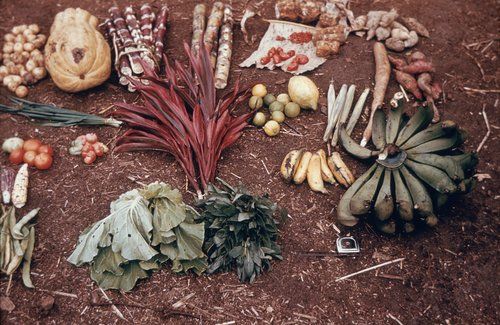Another foray into the wonderful world of agrobiodiversity iconography today, if you don’t mind. These musings started in the National Archaeological Museum in Athens when I saw this detail from a 500 BC marble grave stela from Velanideza in Attica.
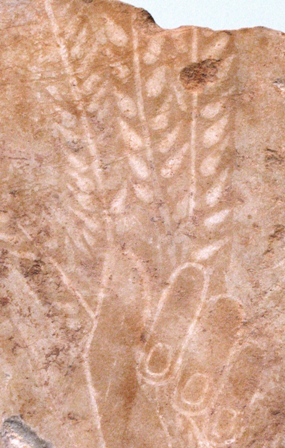
Originally, this would have been painted, and the museum helpfully provides a reconstruction (sorry about the reflection).
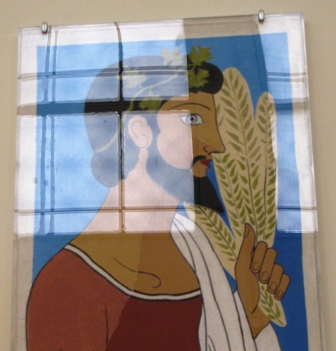
This is part of what the caption says (eccentric spelling etc. in the original):
Depicted is the dead Lyseas in the guise of Dyonisos’ worshiper. He bears a vine wreath on his head, chiton and himation. He holds a kantharos (wine cup) in his right hand and a laurel branch (?) in his left… According to the inscription carved on the base, the stele was erected by Semon on the grave of his son, Lyseas.
Now, about that question mark. I guess it could be laurel, but aren’t depictions of that plant usually in the form of wreaths? Might they not be cereal spikes that Lyseas is holding? Ok, cereal spikes which have lost their awns, but the paint has faded a lot. Cereal spikes like these, admittedly much more naturalistic ones, on a Theran pot.
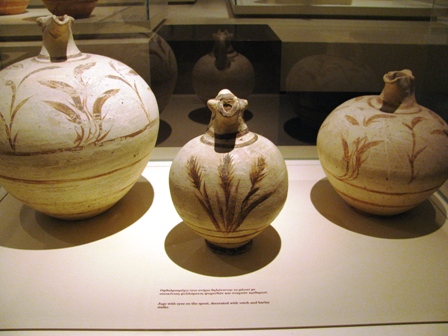
Cereal spikes a bit like these advertizing a modern bakery a short walk from the museum.

Or like these modernistic renditions, also lacking awns, by the entrance of a branch of a local bank with a focus on agriculture.
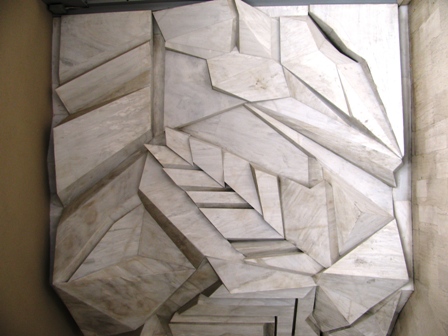
Well, maybe not. It probably was laurel after all. But that question mark…
